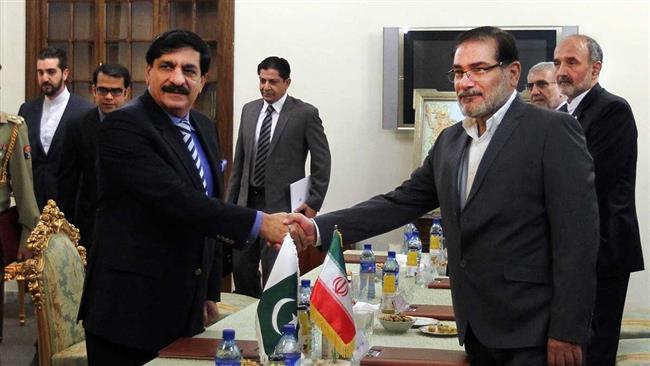Having secured his re-election in last Friday’s vote, Iran’s President Hassan Rouhani has wasted no time in promoting his foreign policy of engagement, beginning with Pakistan and Turkey.
The Supreme Leader implicitly criticized Rouhani’s engagement during the Presidential campaign, but primarily as a warning against links with the “West” and the US. With European links hamstrung by the continued US restrictions and the uncertainties of the Trump Administration, a turn to the “East” — including Turkey, Pakistan, and China — is the likely short-term strategy uniting Ayatollah Khamanei and the Iranian Government.
Iranian media this morning are filled with stories about visits and phone calls to repair and promote Iranian ties, beginning with the meeting of the Secretary of the National Security Council, Ali Shamkhani, with his Pakistani counterpart.
Fresh from talks on Tuesday in Moscow about the Syrian crisis, Shamkhani used the encounter to signal an easing of tensions between Iran and Pakistan after recent attacks on Iranian forces in the southeast of the country by the mainly-Sunni Jaish ul-Adl insurgency.
See also Iran Daily, May 24: Top Official in Moscow for Syria Talks
Throughout May, Iran’s military has tried to press Islamabad with warnings of action if the Pakistanis did not deal with Jaish ul-Adl’s fighters as they crossed the border after attacks.
But Shamkhani shifted public emphasis on Wednesday with his proclamation, “We should not let any third countries, which do not favor security and good neighborliness between Iran and Pakistan, affect friendly ties between the two countries.”
Shamkhani made the remarks after seeing Naseer Khan Janjua, Pakistan’s national security advisor, on the sidelines of an international security summit in northwest Russia.
Iran’s shift has also been spurred by the recent diplomacy of Saudi Arabia, which has been hoping to bring Pakistan into a de facto alliance challenging Iran.
The Pakistanis attended last Sunday’s “Riyadh Summit” including the US as well as states through the Middle East. However, Islamabad’s line — which proved unsuccessful at the meeting — is that it can serve as a broker of better relations between Tehran and Riyadh.
Shamkhani also met with Meng Jianzhu, the Secretary of the Central Political and Legal Affairs Commission of China’s Communist Party. Talks included the Syrian crisis and the announcement of a $380 billion US arms sale to Saudi Arabia — Iranian media claimed the Chinese official said the development “undermined peace and security in the region”.
Rouhani Talks With Turkey’s Erdoğan
President Rouhani spoke with Turkish counterpart Recep Tayyip Erdoğan on Wednesday, emphasizing a resurgence in links to support Iran’s economic recovery.
“Over the past four years, big steps have been taken to develop and deepen Iran-Turkey ties, but a leap must be made … toward reaching an annual trade volume of $30 billion,” Rouhani told Erdoğan, according to Iranian media.
Rouhani also called for the further promotion of cooperation in the banking sector.
The President’s hopes for recovery after implementation of the July 2015 nuclear deal have been limited by financial and banking restrictions, because of both ongoing US sanctions and issues with Iran’s cumbersome banking sector. Despite a growth rate of 6.6% in 2016, Iran has struggled to arrange essential foreign investment.
TOP PHOTO: The Secretary of Iran’s Supreme National Security Council, Ali Shamkhani (right) with Pakistani counterpart Naseer Khan Janjua in Tehran, July 25, 2016

